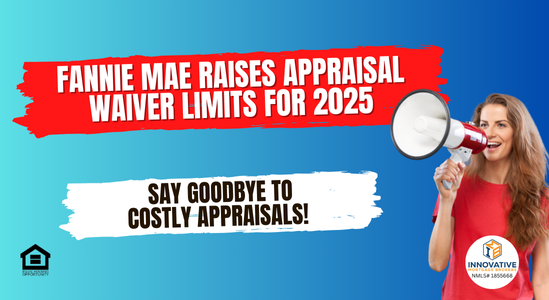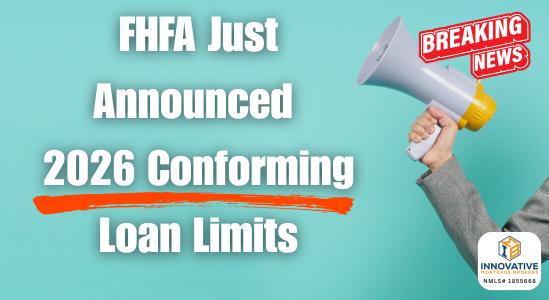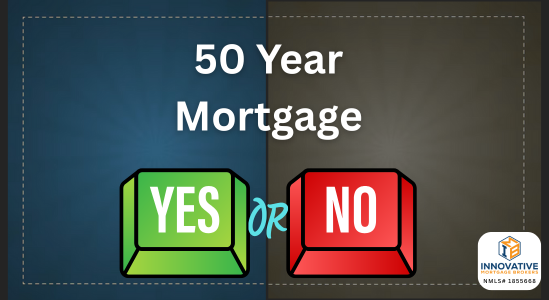Mortgage rate volatility, oil shocks, and why execution matters more than quotes When a war…
Say Goodbye to Costly Appraisals! Fannie Mae Raises Appraisal Waiver Limits for 2025
Fannie Mae Unlocks 90% LTV Appraisal Waivers—Is Your Home Eligible?
Fannie Mae today announced significant updates to its appraisal policies, aiming to make home valuation more efficient and cost-effective for borrowers. These changes, set to roll out in early 2025, introduce expanded eligibility for “Value Acceptance” (Fannie Mae’s term for appraisal waivers) by raising the loan-to-value (LTV) threshold from 80% to 90% for primary and secondary homes. This is big news for both homebuyers and lenders, as it allows more borrowers to bypass traditional appraisals, using Fannie Mae’s advanced technology to confirm property value while keeping the process streamlined and transparent.
Here’s a closer look at the impact of these changes, why they’re happening, and what they mean for buyers and sellers alike.
What Are Appraisal Alternatives?
Appraisals are a central part of the home-buying process. Traditionally, they require a licensed professional to assess a property’s value based on its condition, comparable sales in the area, and other factors. But appraisals can be costly and time-consuming, and that’s where appraisal alternatives come in.
Fannie Mae’s “Value Acceptance” approach leverages data and technology to determine a property’s value without a full physical appraisal. This alternative uses analytics and property data from reliable sources to validate the home’s worth, offering a more streamlined process for qualified properties. Until now, these appraisal alternatives were only available for loans with an LTV of up to 80%.
The recent update raises the LTV limit to 90%, meaning more borrowers can skip the traditional appraisal if their home qualifies, saving both time and money.
Why the Shift? Fannie Mae’s Goals Behind Raising the LTV Cap
The motivation behind this change is rooted in Fannie Mae’s commitment to making homeownership more accessible and the mortgage process more efficient. By raising the LTV limit, Fannie Mae is allowing a larger pool of borrowers to take advantage of a quicker, more affordable appraisal option. This helps to address several key industry challenges:
- Cost Savings for Borrowers
Traditional appraisals can cost anywhere from around $500 to $700 or more, depending on the property and market. By providing appraisal alternatives, Fannie Mae effectively lowers these upfront costs for eligible borrowers. - Reduced Time and Complexity in Closing
Appraisals can add time to the loan approval process. Scheduling appraisal, waiting for results, and handling potential disputes all contribute to closing delays. With appraisal alternatives, the process becomes much faster and less cumbersome, particularly beneficial in competitive markets where buyers need quick approvals. - Improved Efficiency Through Technology
Fannie Mae has invested heavily in data and technology, enabling more accurate, data-driven assessments. This new policy leverages these innovations to provide a reliable alternative to traditional appraisals, reducing the dependency on manual evaluations and making use of property data already in Fannie Mae’s systems. - Minimizing Potential Disruptions
The pandemic highlighted the challenges of in-person appraisals, making it clear that lenders and borrowers could benefit from digital processes that keep things moving even when traditional appraisals are delayed. This approach ensures borrowers can continue closing loans quickly, even in situations where face-to-face interactions may be difficult.
Who Benefits the Most from These Changes?
These updates are especially advantageous for:
- First-Time Homebuyers
Buyers who need a higher LTV often have less cash upfront, making the lower cost of appraisal alternatives particularly attractive. Additionally, with fewer requirements to meet, they can streamline their loan approval and focus on getting into their new homes more quickly. - Repeat Buyers
Those buying new homes or second homes (vacation homes) can also benefit from the new 90% LTV cap on appraisal alternatives. Previously, these buyers may have had to jump through more hoops, but now they have a simpler path to securing financing without the need for traditional appraisals. - Lenders and Real Estate Agents
Faster closings and fewer manual appraisals help lenders process more loans and improve efficiency. Real estate agents, in turn, may see fewer delays, helping clients secure properties faster, which is especially helpful in competitive markets.
How Does the Value Acceptance Process Work?
The process is fairly straightforward for qualified borrowers:
- Property and Borrower Eligibility Check
Lenders assess if a loan qualifies for Value Acceptance based on Fannie Mae’s guidelines, which evaluate factors like the property type, LTV ratio, and borrower profile. - Data Review
If the property qualifies, Fannie Mae’s advanced technology analyzes the property’s value using historical data, neighborhood trends, and property-specific information. This provides an estimated value without requiring an on-site appraisal. - Streamlined Approval
Once value acceptance is confirmed, the loan process continues without the traditional appraisal step, leading to faster closings and lower costs.
Understanding the 90% LTV Limit
The loan-to-value ratio plays a significant role in determining eligibility. Traditionally, appraisal waivers were only available to loans with an 80% LTV or lower. Now, Fannie Mae is extending this threshold to 90% for primary and second homes, meaning borrowers who put down as little as 10% can still qualify for an appraisal alternative.
While this change does not eliminate the need for appraisals entirely, it does create a more flexible option for many borrowers, offering significant benefits in terms of convenience and affordability.
Key Considerations and Potential Limitations
While these changes are exciting, it’s important for borrowers and lenders to keep a few considerations in mind:
- Not All Loans Will Qualify
Value Acceptance is not universally available for all properties or borrowers. Lenders will evaluate each loan individually, and Fannie Mae’s guidelines specify that certain criteria must be met. - Data Accuracy is Crucial
Because the alternative relies on data, it’s essential for properties to have accurate and up-to-date information. Homes with limited data or unusual features may still require traditional appraisals to confirm value. - Geographic Variability
Some areas may have less comprehensive property data, which can impact a property’s eligibility for appraisal alternatives. Buyers in less populated areas should check with their lender to determine if their property qualifies. - Investor Property Limitations
Currently, the expanded LTV cap applies primarily to primary residences and second homes, meaning that investors may have slightly different guidelines to follow when seeking appraisal alternatives.
How This Impacts the Mortgage Market
This move from Fannie Mae marks a significant shift toward digital transformation within the mortgage industry, and it’s likely to have a lasting impact. The expanded Value Acceptance option it is ultimately helping the entire market become more efficient. This could also lead to a shift in how appraisals are viewed, with greater reliance on data-driven models expected in the future.
Lenders who incorporate appraisal alternatives may see faster processing times, increased customer satisfaction, and even reduced operational costs. And as borrowers become more familiar with these options, the demand for quicker, more streamlined processes may grow, pushing more innovation in the field.
Final Thoughts
Fannie Mae’s recent updates to its Value Acceptance program underscore a clear commitment to making home financing more efficient, accessible, and affordable. By expanding the LTV limit to 90% for primary and second homes, Fannie Mae has created an opportunity for more borrowers to benefit from a faster, less costly appraisal process.
This change doesn’t just benefit first-time buyers or those with limited funds. It opens up new possibilities for repeat buyers, people purchasing second homes (vacation homes), and anyone seeking a more streamlined approach to home financing. At Innovative Mortgage Brokers, we’re excited to help our clients take advantage of these changes and to guide you through the mortgage process with the best tools and insights available. If you’re looking for a mortgage in Pennsylvania or Florida, reach out to us to learn more about how these updates could benefit your journey to homeownership.
For more details, check out Fannie Mae’s official announcement.





